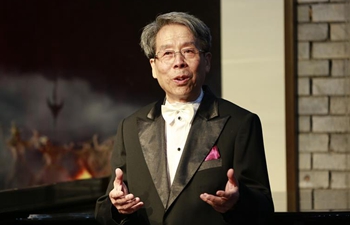CANBERRA, Aug. 16 (Xinhua) -- More than one million Australians have avoided seeing a doctor in the last 12 months because they could not afford, a report revealed Thursday.
The Australian Institute of Health and Welfare (AIHW) report, published on Thursday, found that Australians paid three billion Australian dollars (2.17 billion U.S. dollars) out-of-pocket every year despite bulk billing rates being higher than ever.
Nationally, 10.9 million Australians paid out of their own pocket for medical services in financial year 2017 at a median of 142 Australian dollars (103 U.S. dollars) each despite 86 percent of General Practitioner (GP) services being bulk-billed.
According to the report, 1.3 million Australian put off seeing a doctor because of that cost.
"It's really concerning that consumers are delaying care because they can't afford it," Leanne Wells, chief executive of the Consumers Health Forum of Australia, told the Australian Broadcasting Corporation (ABC) on Thursday.
"We know that if you've got an ongoing relationship with a GP, that equates not only to better care, but also impacts on people's lifespan and morbidity.
"The fact people aren't able to take up referrals because of costs, or they're having to face hard decisions about curtailing other aspects of their family budget, that's a concern."
Tony Bartone, president of the Australian Medical Association (AMA), said that investment in Medicare had failed to keep up with rising medical costs.
"The cost of providing care continues to rise and the Medicare rebate is inadequate in its entirety," he said.
Health Minister Greg Hunt rejected that claim, saying that the bulk-billing rate proved the system was working.
Almost 70 percent of patients in Canberra, one of Australia's most affluent areas, incurred out-of-pocket expenses compared to only 32 percent in the working class western Sydney.
"Lower income patients in lower income areas are dramatically less likely to have out-of-pocket costs than those in higher income areas," Hunt said.
"The bulk billing is, as we had hoped, being targeted at lower income people, and higher income people are exercising their choice."













